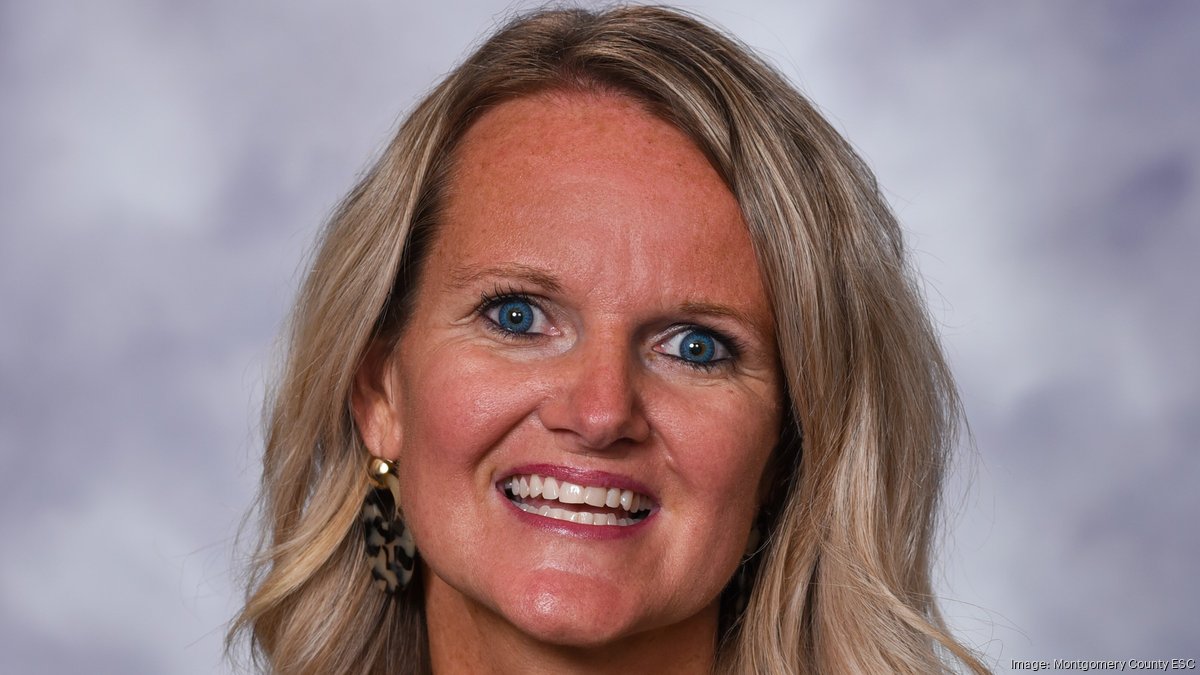
‘From strength to strength’: BBYO ‘Global Shabbat’ unites Jewish teens JNS.org
source

For premium support please call:
For premium support please call:
DES MOINES – Legal experts representing different ends of the political spectrum say the recent lawsuit by President-elect Donald Trump against the Des Moines Register is based on a strained interpretation of Iowa law and is unlikely to find success in court.
Trump filed suit Dec. 16 against the Register, its parent company Gannett and longtime Iowa pollster Ann Selzer, alleging violations of the Iowa Consumer Fraud Act. The complaint centers on a poll published by the Register in early November that understated Trump’s support, showing Vice President Kamala Harris with a 3-point lead over Trump in Iowa just days before Trump went on to win the state by 13 points.
Trump’s suit alleges the poll was fraudulent and an attempt at election interference. The Register has said it stands by its work.
Several experts who have reviewed Trump’s petition say his legal theory is a stretch. Samantha Barbas, a professor and First Amendment expert with the University of Iowa College of Law, said Iowa’s consumer fraud law is a poor fit for Trump’s complaint.
The Iowa Consumer Fraud Act “is meant to protect people who buy goods or services, not people who consume news and other sorts of information,” Barbas said. “So this is completely far-fetched, in my opinion, and other than Trump’s lawsuit here, and he has a similar case going on in Texas, I’m not aware of parties that have used a consumer fraud statute to punish or sue newspapers for information they don’t like.”
The Texas case in question is one Trump filed in November against CBS News, alleging the network violated Texas’ consumer fraud statute by deceptively editing a “60 Minutes” interview with Harris. That lawsuit remains pending before a Texas federal judge, and CBS has moved to have it dismissed.
Bill Brauch, a retired attorney who served as director of the Iowa attorney general’s consumer protection division from 1995 to 2015, said he also is not familiar with any cases applying Iowa’s law in this manner.
“I practiced law in this area for 30 years, I have never heard of anyone being sued in the media for publishing a story,” said Brauch, who is now chair of the Polk County Democrats.
Brauch further questioned how a news article could fall under the definition of “merchandise” in Iowa’s law, which forbids deception in relation to the sale of “objects, wares, goods, commodities, intangibles, securities, bonds, debentures, stocks, real estate or services,” especially as the complaint does not allege that Trump actually bought a copy of the newspaper.
“It is a real stretch to argue that somehow a story that you don’t like in a newspaper gives you a cause of action for consumer fraud.” he said. “Who is the consumer who’s been defrauded? How would Donald Trump have been defrauded?”
Eugene Volokh, a UCLA professor and fellow with the free market-oriented Hoover Institution, wrote Dec. 18 for the libertarian-leaning publication Reason that “the First Amendment generally bars states from imposing liability for misleading or even outright false political speech, including in commercially distributed newspapers — and especially for predictive and evaluative judgments of the sort inherent in estimating public sentiment about a candidate.”
Volokh cited a 2020 case from Washington state courts, where a group sued Fox News alleging that its statements by its show hosts, including Sean Hannity, dismissing or minimizing the COVID-19 pandemic violated that state’s consumer protection laws. Both the district judge and appellate courts in Washington rejected that claim, finding that statements of opinion on a topic of public concern are core First Amendment-protected speech.
“There are some historically recognized exceptions to First Amendment protection for knowing falsehoods, such as for defamation, fraud, and perjury. But those are deliberately exceptions,” Volokh wrote. “Defamation is limited to knowing (or sometimes negligent) falsehoods that damage a particular person’s reputation. Fraud is limited to statements that themselves request money or other tangibly valuable items. Perjury is limited to lies under oath in governmental proceedings. There is no general government power to punish political falsehoods outside these narrow exceptions.”
Barbas noted that Trump has a history of filing lawsuits against the media, usually raising claims for defamation. That includes a lawsuit against ABC News, accusing anchor George Stephanopoulos of falsely stating Trump had been found liable for rape. ABC settled that suit earlier in December for $15 million.
“Defamation law wouldn’t apply in this situation, because in order for there to be the legal action for defamation, somebody’s reputation has to be harmed. And Trump couldn’t claim that his reputation was harmed by a poll saying that he was behind,” she said. “So his lawyers kind of reached for this unique theory of consumer fraud.”
Whether the new lawsuit, currently pending before an Iowa federal judge, has merit or not, Barbas said subjecting media organizations to the threat of litigation can have a chilling effect.
“Trump and his allies have made a number of threats in recent months against news publications and book publishers, mostly threatening to sue for defamation over critical comments, and the ABC settlement showed that Trump can get news organizations to essentially bow to him,” she said. “I think that has emboldened him, as this Iowa lawsuit seems to suggest, and I’m confident that there will be more, similar suits in the weeks and months to come.”
Nicholas A. Klinefeldt, an attorney representing the Des Moines Register in the case, said the First Amendment guarantee of press freedom, not a state law on consumer fraud, is the central principle involved.“ In Iowa, elections are not consumer goods for sale. President Trump’s attempt to assert his ridiculous theories about election interference via a claim under the Iowa Consumer Fraud Act will not stand,” Klinefeldt said. “The Iowa Consumer Fraud Act was intended to protect Iowa consumers and not to become a vehicle to intimidate the press. We have full confidence that President Trump will fail in this attempt.”
The Trump presidential transition team did not respond to a request for comment.
William Morris covers courts for the Des Moines Register. He can be contacted at wrmorris2@registermedia.com or 715-573-8166.
This article originally appeared on Des Moines Register: Trump fraud lawsuit against Register unlikely to succeed, experts say
Advertisement
Advertisement
AOL
AOL
AOL
Advertisement
Advertisement
Advertisement
Advertisement
Advertisement
Advertisement
Advertisement
Advertisement

Sunita Williams, Barry Wilmore, Don Pettit and Nick Hague were launched into space on 5 June on what was due to be an eight-day test flight mission – but technical issues mean they are still stranded on the International Space Station.
Tuesday 24 December 2024 14:58, UK
Please use Chrome browser for a more accessible video player
Astronauts stranded on the International Space Station over Christmas have sent a festive message back to Earth.
Sunita Williams, Barry Wilmore, Don Pettit and Nick Hague were launched into space on 5 June on what was due to be an eight-day test flight mission.
But the Boeing-made Starliner spacecraft suffered several technical issues, including helium leaks and thruster failures, and has been unable to return since.
In the video message, recorded on 23 December, Mr Hague says: “The holiday season, it’s about spending time with friends and family and loved ones – this year we’re going to be in orbit away from them, so we want to send our heartfelt merry Christmas and we hope you have a wonderful holiday.”
Read more:
Fastest object ever built orbits close to sun
Tesla recalls 700,000 cars over fault
In the clip, the astronauts pass each other weightless candy canes, with Mr Hague adding: “We’re not the only ones who are going to spend time away from our families.
“There’s a huge team on the ground that’s going to support us with mission controls around the globe over the holidays and I want to thank them for the sacrifices they’re making together.”
Finally Mr Pettit says the holidays are “synonymous with food and feasting” as they show off an air-tight package of canned food.
It isn’t the first Christmas Ms Williams has spent defying gravity – she was in space for the festive season in 2006.
Last month, the crew were given a day off to celebrate Thanksgiving – and also took time out from their duties to cast their votes in the US election on 5 November.

WSOC Now
CHARLOTTE — Charlotte-Mecklenburg Animal Care & Control said dozens of animals need a place to stay for the holidays.
Officers said they’ve taken in 135 dogs in the past week. That’s an average of about 19 dogs per day.
The shelter will be closed from Christmas to Friday, which means no animals can be adopted or fostered on those days.
“That’s causing a big hiccup with the amount of dogs that have been coming in the last week or so. It’s going to be a big traffic jam for kennels. And so we are begging the community to help by taking a dog home for the holidays,” Melissa Knicely, a spokesperson for CMPD Animal Care & Control, told Channel 9.
0 of 4
You can get them out of the shelter by adopting, fostering, or taking in a pet through its staycation program.
The shelter closes at 7 p.m. Tuesday night.
WATCH: 5-month-old Millie is Kannapolis Police Department’s first therapy dog
5-month-old Millie is Kannapolis Police Department’s first therapy dog
©2024 Cox Media Group
© 2024 Cox Media Group. This station is part of Cox Media Group Television. Learn about careers at Cox Media Group. By using this website, you accept the terms of our Visitor Agreement and Privacy Policy, and understand your options regarding Ad Choices.

Well, that’d be a nice add to the holiday celebrations.
It’s been more than 100 days since someone won the Mega Millions jackpot, and we’ll all get another chance Tuesday night, with the jackpot swelling to $970 million ahead of the next drawing.
Mega Millions is a lottery game costing $2 per play where players pick five numbers from 1 to 70 and a one gold Mega Ball number from 1 to 25. If a player doesn’t want to pick the number, they can do a Quick Pick where the machine will randomly pick their numbers.
>24/7 New York news stream: Watch NBC 4 free wherever you are
To win the jackpot, a player must match all six numbers, including the Mega Ball.
Here’s what you need to know the next drawing:
Mega Millions drawings take place every week on Tuesdays and Fridays.
Mega Millions drawings take place at 11 p.m. Eastern, which is 10 p.m. Central, 9 p.m. Mountain, and 8 p.m. Pacific time.
Powerball drawings take place Mondays, Wednesdays and Saturdays at 10:59 p.m.
The next Mega Millions drawing will be held Tuesday, Dec. 23 at 11 p.m. ET/8 p.m. PT.
The jackpot for Tuesday’s drawing currently sits at an estimated $970 million, with a cash option of $439.9 million.
If won at $970 million, it would be the largest prize ever won in December and the seventh-largest in the game’s history, according to Mega Millions.
Mega Millions tickets currently costs $2 to play in 2024.
Starting in April, Mega Millions tickets will jump from $2 to $5, but the lottery said that price increase will lead to bigger prizes.
The last time a player won the Mega Millions jackpot was on Sept. 10, when the jackpot was $800 million.
The winning ticket was sold in Texas. It was won by the Sol Living Trust of Sugar Land, Texas.
Prior to that, a $552 million jackpot was won June 4 in Illinois and a $1.128 billion prize was won in New Jersey in Neptune Township on March 26.
The top Mega Millions jackpots in history are:
If you or someone you know has a gambling addiction, please call the National Council on Problem Gambling at 1-800-522-4700 to speak to a counselor. Help is also available via an online peer support forum at www.gamtalk.org, and additional resources can be found at NCPG website.

When we fall prey to perfectionism, we think we’re honorably aspiring to be our very best, but often we’re really just setting ourselves up for failure, as perfection is impossible and its pursuit inevitably backfires. Verified by Psychology Today
Updated December 24, 2024 Reviewed by Abigail Fagan
With the global population aging, and rising concerns about mental health, loneliness, and social isolation, understanding and enhancing later-life satisfaction has become increasingly crucial for both individual and global health and productivity. The World Health Organization1 reports that by 2030, one out of six people will be 60 years or older, comprising 1.4 billion people, with those over 80 approaching half a billion.
Given the vast scope of this issue, it’s surprising that we have a limited understanding of what preserves and enhances generativity in our later years, as research to date is still early-on. Along similar lines, increased generativity would be expected to enhance well-being, and protect against many of the negative outcomes currently associated with aging. With the global population getting older and the average human lifespan increasing, it is imperative to work out how to extend healthspan and productivity, meaning, purpose and community.
A recent study by Mohsen Joshanloo, Ph.D., published in the Journals of Gerontology (2024), took a novel approach using machine learning to extract key variables from the Midlife in the United States (MIDUS) dataset. This study included a wide range of psychological and demographic variables and measured generativity using the Loyola Generativity Scale. Participants ranged from 39 to 93 years old, with an average age of 63.64. Using maching learning allows us to make sense out of complicated data sets where standard statistical approaches may falter.
From a broad perspective, a few key concepts help us understand aging across the lifespan. These include Erik Erikson’s developmental model, especially Middle and Older Adulthood (below); the balance of stability and plasticity (contributing to consistency and change); and the two major forms of well-being—eudaimonic (meaning) and hedonic (pleasure), which need to be in harmony. Personality traits, measured by the Big Five (Five Factor Model, or FFM), play a role in this process, with some contributing to stability or plasticity. For example, openness to experience is linked with plasticity, while neuroticism, because of an anxious reluctance to take risks, is often associated with stability.
The study used a “Random Forest Analysis” machine learning technique. This method builds multiple decision trees to sift through large datasets, identifying non-linear relationships and dynamic interactions. The model was trained on a subset of data and then tested against the rest to minimize prediction error and enhance accuracy. It analyzed 34 variables for 2,830 participants, after removing those with missing data and reducing the original 70 variables to a set of non-redundant measures.
The final model predicted 40% of the variance in generativity, revealing five key factors as the strongest predictors, ranked by significance:
Additional important factors include a sense of purpose in life and self-acceptance, which highlight the importance of living a meaningful life (eudaimonia) and having a coherent life narrative. Generativity is influenced by how we view ourselves against the backdrop of our life story. Spiritual experiences also emerged as a relevant factor, pointing to the role of transcending quotidian concerns to see ourselves within a broader context.
Factors that were not significant in this model included demographic and health factors such as gender, health status, and socioeconomic variables. While these factors have been important predictors of well-being and life satisfaction in other studies, the machine learning analysis suggests they may not be the most crucial drivers of generativity, though they likely influence the key factors mentioned above. They may be necessary but not sufficient for generativity, perhaps accomplishments from earlier stages of life and provision of basic needs, providing stability and an all-important springboard for generativity into later life.
Because the dataset is cross-sectional, the results are correlational rather than causal. Future research using machine learning approaches such as Random Forest Analysis, and others, could look at longitudinal data sets to determine causality and further explore additional variables that may influence generativity. Hybrid intelligence, synergizing human and artificial minds to go beyond the capacity of either alone, holds promise for addressing knotty problems.
While the jury is still out, this study identifies important factors which, beyond their statistical significance, make a certain intuitive sense when contemplating how to flourish and increase generativity as we grow older. Rather than fading away, focusing on social factors including both leadership and belonging emerges as important. Cultivating mental flexibility and openness to experience are core. Stability is important, but in excess may lead to stagnation, and failure to take necessary risks.
Plasticity factors dovetail with personal growth orientation, flowing together into Erikson’s last two developmental tasks: Middle Adulthood Generativity vs. Stagnation, and Late Adulthood Integrity vs. Despair. It’s important to maintain ambition as part of the story, but not to an extreme, understand who we are and where we fit into a broader sense of purpose and meaning, and at the same time enjoy ourselves along the way.
References
1. World Health Organization (WHO) Ageing and Health
2. One Personality Trait Distinguishes Gifted People
Mohsen Joshanloo, Key Predictors of Generativity in Adulthood: A Machine Learning Analysis, The Journals of Gerontology: Series B, 2024;, gbae204, https://doi.org/10.1093/geronb/gbae204
Disclaimer: An ExperiMentations Blog Post (“Our Blog Post”) is not intended to be a substitute for professional advice. We will not be liable for any loss or damage caused by your reliance on information obtained through Our Blog Post. Please seek the advice of professionals, as appropriate, regarding the evaluation of any specific information, opinion, advice, or other content. We are not responsible and will not be held liable for third-party comments on Our Blog Post. Any user comment on Our Blog Post that in our sole discretion restricts or inhibits any other user from using or enjoying Our Blog Post is prohibited and may be reported to Sussex Publishers/Psychology Today. Grant H. Brenner. All rights reserved.
Grant Hilary Brenner, M.D., a psychiatrist and psychoanalyst, helps adults with mood and anxiety conditions, and works on many levels to help unleash their full capacities and live and love well.
Get the help you need from a therapist near you–a FREE service from Psychology Today.
Psychology Today © 2024 Sussex Publishers, LLC
When we fall prey to perfectionism, we think we’re honorably aspiring to be our very best, but often we’re really just setting ourselves up for failure, as perfection is impossible and its pursuit inevitably backfires.

Listen to this article 4 min
The Dayton-area educational service center is assisting state and national groups by hosting national artificial intelligence (AI) summits across the state and plan to continue this into the future. The groups are collaborating to prepare students for an evolving society in which AI is prevalent.
The Ohio Lieutenant Governor’s Office and a national nonprofit are collaborating to prepare students for an evolving society in which artificial intelligence (AI) is prevalent.
The Lieutenant Governor’s Office and aiEDU, a 501(c3) that supports advanced AI literacy in education, together are rolling out a state-wide AI framework for educators. The endeavor was initiated as part of Lt. Gov. Jon Husted’s InnovateOhio project, which includes an objective to enhance AI readiness in schools through a toolkit offering resources and guidance for teachers, students, and parents.
The toolkit is a comprehensive, 140-page document providing guidance and best practices, while offering consistency in utilizing AI in the school system.
“AI-powered tools have been in place for years. The artificial intelligence was working in the background but has now become more visible,” says Candice Sears, director of instructional services for the Montgomery County Educational Service Center (MCESC). “This effort is focused on generating consistencies in the education systems across the state.”
Sears says an ongoing partnership with Alex Kotran, CEO for aiEDU, and its AI Education Project, was beneficial in formulating a proposal through the Ohio Educational Service Center Association (OESCA). The document details a plan to establish AI readiness across the state.
While the Lieutenant Governor’s Office and aiEDU coordinated initial efforts, OESCA and the MCESC worked in parallel to support AI in education. The latter served as a liaison between aiEDU, OESCA and other work organized statewide.
“We want to make sure that our work is complementary to the toolkit. We know the complexities of integrating AI into the education space and want to support schools in maximizing the use of the content within the AI toolkit,” Sears says. “So, this project aimed to collaborate with aiEDU to develop model policy protocols that serve as a more condensed version of what was already out there.”
OESCA and MCESC also hosted four national AI summits across the state and plan to continue this into the future. The summits occur in various geographic areas, fostering accessibility for all those interested.
OESCA and MCESC are proposing to host several more state-wide summits next spring with a goal to continue building AI literacy in the education space.
“We invited national experts in to share the knowledge of AI readiness,” Sears says. “Many educational leaders across the state have seen the impact and have started hosting professional development events such as conferences and summits.”
Sears says it’s essential to continue the momentum generated around AI.
As part of the launch, every ESC was asked to identify one or two AI champions within their organization. Currently, there are over 1,200 AI champions in Ohio that include ESC leaders, district leaders, and educators. The ESCs, in cooperation with aiEDU, offer professional development opportunities for champions on a quarterly basis. Monthly newsletters are sent throughout the year, too.
As technology advances, leaders continue to navigate the landscape of integrating AI into the classroom. While AI offers so many opportunities in the education space, challenges remain; in particular, data privacy and security and potential bias.
“AI systems and education require extensive data including student performance, behavior, and personal details. AI systems can inadvertently reinforce bias in their training data which could lead to unfair treatment,” Sears says. “It is important for us to be aware of how the data is fed into the infrastructure, and test and pilot the technology so it represents various perspectives.”
© 2024 American City Business Journals. All rights reserved. Use of and/or registration on any portion of this site constitutes acceptance of our User Agreement (updated August 13, 2024) and Privacy Policy (updated December 17, 2024). The material on this site may not be reproduced, distributed, transmitted, cached or otherwise used, except with the prior written permission of American City Business Journals.

Christmas travel
Amid what is set to be the busiest holiday season ever for US air travel, American Airlines passengers have suffered Christmas Eve disruption today, after the company briefly sought a ground stop from the Federal Aviation Administration (FAA).
At 6:50 a.m. ET, the FAA revealed that it had ordered a ground stop for all American Airlines flights in the US, having issued the order at the company’s own request. An hour later, the FAA announced the cancellation of the stop.
American Airlines is yet to fully explain why it asked FAA for the ground stop, but said in a social-media post that it had been hit by a “technical issue.”
“We’re currently experiencing a technical issue with all American Airlines flights,” the carrier said on its X account. “Your safety is our utmost priority, once this is rectified, we’ll have you safely on your way to your destination.”
We're currently experiencing a technical issue with all American Airlines flights. Your safety is our utmost priority, once this is rectified, we'll have you safely on your way to your destination.
Per ABC, American Airlines has said some flights are now beginning to board. At the time of writing, however, it appeared that normal service was yet to resume across all the carrier’s US flights.
At shortly before 9:00 a.m. ET, American Airlines said to an X user who reported that he had been forced to de-board his flight: “At present, we don’t have an exact timeframe [on the technical issue being fully resolved]. Rest assured, our team is working on getting you back on track as soon as possible. We appreciate you hanging in there with us!”
If you are travelling with American Airlines today, you can check the status of your flight on the company’s live tracker.
According to a press release issued by the US Department of Transportation last week, the Transport Security Administration (TSA) expects to screen around 40 million people between December 19 and January 6, up 6.2% on the numbers experience in the 2023 holiday season.
Christmas
Welfare
Get your game on! Whether you’re into NFL touchdowns, NBA buzzer-beaters, world-class soccer goals, or MLB home runs, our app has it all.
Dive into live coverage, expert insights, breaking news, exclusive videos, and more – plus, stay updated on the latest in current affairs and entertainment. Download now for all-access coverage, right at your fingertips – anytime, anywhere.
About the author
William Allen
British journalist and translator who joined Diario AS in 2013. Focuses on soccer – chiefly the Premier League, LaLiga, the Champions League, the Liga MX and MLS. On occasion, also covers American sports, general news and entertainment. Fascinated by the language of sport – particularly the under-appreciated art of translating cliché-speak.
Science
Social Security
Christmas
DAZN
Enjoy live and on-demand online sports on DAZN. Activate your account
NBA Pass League
Now you can watch the entire NBA season or your favorite teams on streaming.

Subscribe and get breaking news, commentary, and opinions on law firms, lawyers, law schools, lawsuits, judges, and more.
(Photo by Spencer Platt/Getty Images)
* The least qualified judge in the country’s husband is going to be DOJ chief of staff. They are not sending their best. [Bloomberg Law News]
* Judge who threatened to shoot teenagers resigns. [ABA Journal]
* Biden kills new judges law… [Law360]
* Which doesn’t make sense when you look at the bill. [Fix the Court]
* Unintentionally ironic headline sums up where federal judiciary is right now. “US appeals court allows anti-money laundering law to be enforced.” [Reuters]
* SEC driving Biglaw work… until January anyway. [National Law Journal]
Morning Docket
We will never sell or share your information without your consent. See our privacy policy.
* Luigi pleads not guilty, hot. [NBC]
* The least qualified judge in the country’s husband is going to be DOJ chief of staff. They are not sending their best. [Bloomberg Law News]
* Judge who threatened to shoot teenagers resigns. [ABA Journal]
* Biden kills new judges law… [Law360]
* Which doesn’t make sense when you look at the bill. [Fix the Court]
* Unintentionally ironic headline sums up where federal judiciary is right now. “US appeals court allows anti-money laundering law to be enforced.” [Reuters]
* SEC driving Biglaw work… until January anyway. [National Law Journal]
Our Sites
© 2024 Breaking Media, Inc. All rights reserved. Registration or use of this site constitutes acceptance of our Terms of Service and Privacy Policy.
